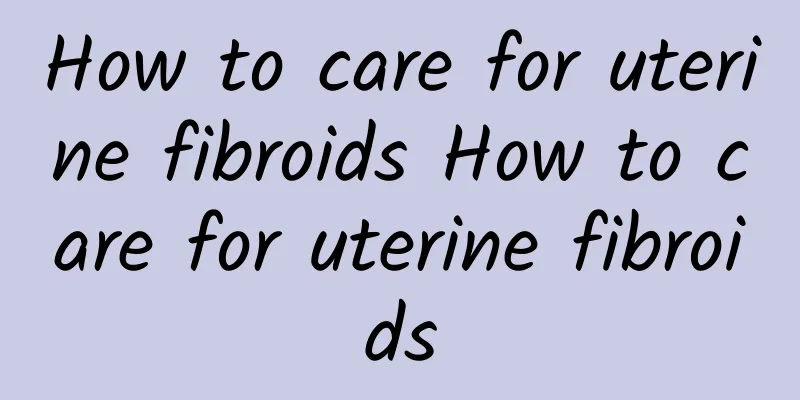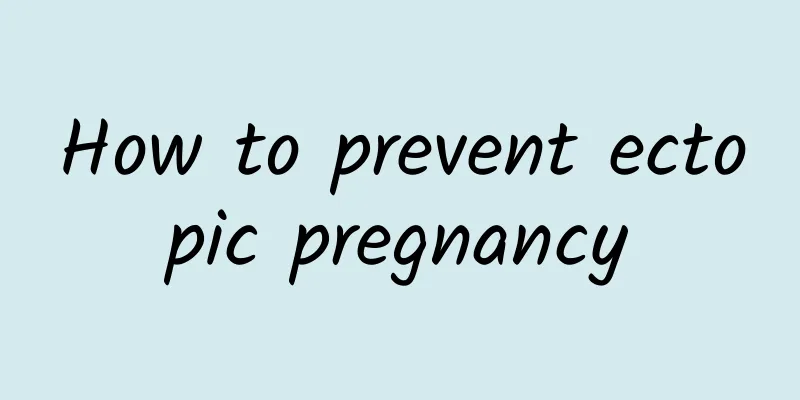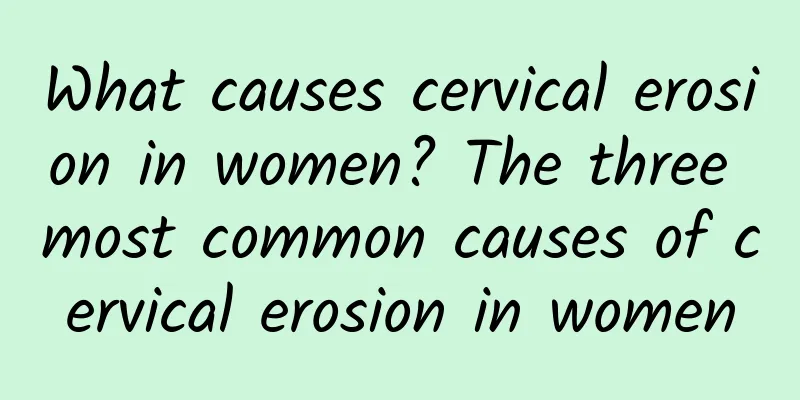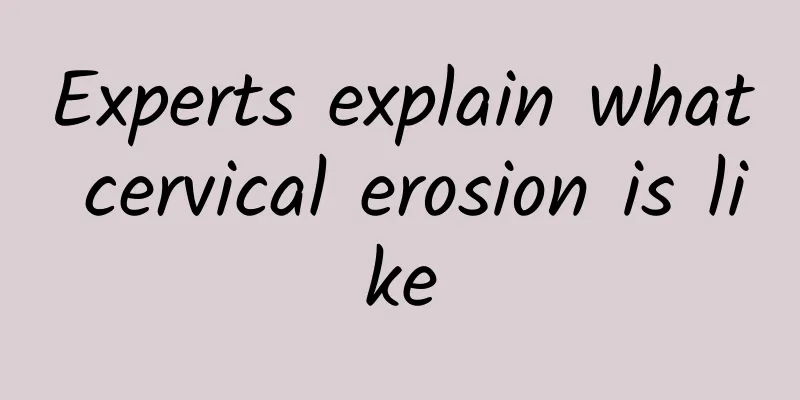What is the cause of uterine fibroids? What are the factors that prevent the recurrence of uterine fibroids?
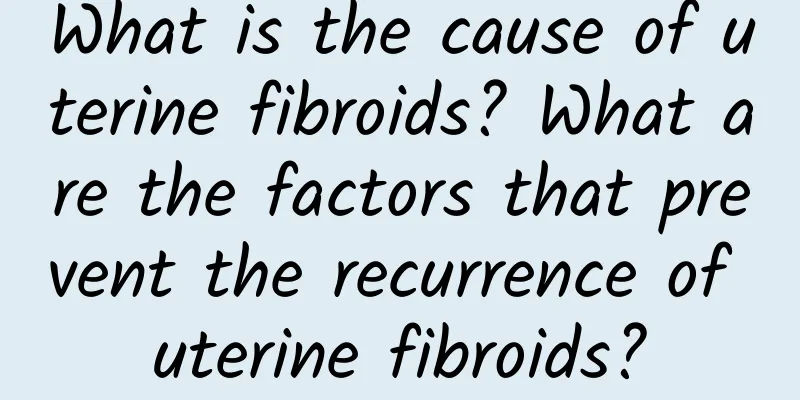
|
Uterine fibroids, also known as uterine leiomyoma, are the most common benign tumors of the female genitalia. Most are asymptomatic, but a few present with vaginal bleeding, abdominal tumors, and compression symptoms. If the pedicle is twisted or other conditions occur, it can cause pain. This is common in multiple uterine fibroids. Will uterine fibroids affect pregnancy? Large uterine fibroids can easily lead to incorrect fetal position or premature birth; if the placenta is too close or directly covers the uterine fibroids, it can easily lead to miscarriage, premature birth, early placental separation, heavy postpartum bleeding, delayed labor, low birth weight and other adverse phenomena, seriously affecting the development and health of the fetus; stem fibroids may twist, and pregnant women may have abdominal pain, so they need to pay attention to cesarean section to avoid more adverse consequences. Uterine fibroids grow from the myometrium, initially growing on the uterine muscle wall, then the tumor grows larger and grows in different directions; if the fibroids enter the surface of the uterus and protrude from the outer surface of the uterus, it is called a subserosal uterine fibroid, which is usually connected to the surface of the uterus by a pedicle. It has little effect on pregnancy and is easy to remove surgically, but when it grows to a certain size, it will affect the smooth progress of delivery. Uterine fibroids are common benign tumors in the female reproductive organs, especially in infertile women. The infertility rate of patients with uterine fibroids is about 30% to 40%, which is higher than that of ordinary people. The degree to which uterine fibroids affect the ability to conceive is related to the location, size and number of fibroids. Treatments for uterine fibroids 1. Regular follow-up: Myomas are small, asymptomatic, without complications or degeneration, and have no impact on health. For perimenopausal patients, who have no clinical symptoms, only regular follow-up observations (once every 3 to 6 months) are required, and treatment will be decided based on the review results. 2. Drug treatment: The basis of uterine fibroid treatment is that uterine fibroid is a sex hormone-dependent tumor, so antagonist hormone drugs are used for treatment, and other androgens, progesterone and vitamin drugs are also used. Experts remind: These two methods are mainly suitable for young people who need to maintain fertility; premenopausal women, fibroids are not large, symptoms are mild; combined with internal medicine, surgical diseases can not be competent for surgery or unwilling to surgery. 3. Surgical treatment: Surgical treatment of uterine fibroids includes hysterectomy and myomectomy. (1) Hysterectomy: If drug treatment is not expected to improve the patient's symptoms and the surgeon is not qualified for myomectomy or appropriate hysterectomy, total hysterectomy or suprapubic hysterectomy can be selected for hysterectomy. Total hysterectomy is generally recommended, especially for patients with severe cervical hypertrophy, laceration or erosion. However, if the patient is in poor general condition and technical conditions are limited, only total hysterectomy can be performed. The incidence of stump cancer is only about 1-4%, but regular examinations should still be performed after surgery. (2) Myomectomy: Myomectomy and uterus-preserving surgery are mainly used for women under 45 years old, especially those under 40 years old. It is not only for infertile women without children, but also for women with children. Myomas with a diameter greater than 6 cm, heavy menstruation that are ineffective with conservative medication, or compression symptoms, submucosal myomas; those with faster-growing myomas should also undergo enucleation for the sake of their physical and mental health. 4. Minimally invasive radiofrequency ablation for uterine fibroids, no need for surgery to protect the uterus. The operation is performed under the full screen, with B-ultrasound dynamic guidance and superconducting needle intervention in the lesion. The temperature is accurately controlled, without damaging normal tissues, and accurately intervenes in the lesion site. The lesion tissue is dehydrated, coagulated, and necrotic through biological high heat, and is absorbed by normal tissues and automatically discharged. Thus, uterine fibroids are eliminated without affecting the normal function of the uterus. It is also important to prevent the recurrence of uterine fibroids 1. To better prevent uterine fibroids from growing again, female friends should start with the cause of uterine fibroids. The latest research shows that the cause of uterine fibroids is mainly related to the increase in female estrogen levels. Therefore, female friends should pay special attention not to cause fluctuations in hormone levels in the body. 2. Female friends should pay more attention to their daily living habits and eating habits to better prevent the regeneration of uterine fibroids. Female friends should maintain regular work and rest, stay optimistic, and not have too much depression, because these depressions can easily lead to increased hormone levels in the body, thereby inducing uterine fibroids. 3. To prevent the recurrence of uterine fibroids, women usually eat as light a diet as possible, eat more fruits and vegetables, and not eat too much spicy, cold, greasy and other irritating foods. Also avoid any food containing hormone ingredients. Long-term intake of hormones from food can also lead to high hormone levels in the body, causing uterine fibroids to grow again. 4. Take contraceptive measures to avoid unwanted pregnancies and induced abortions. Studies have found that pregnancy can accelerate the development of fibroids, so contraception should be used to reduce the number of pregnancies. Fibroid patients should not use oral contraceptives because endogenous and exogenous estrogen stimulation can cause fibroids to develop. Intrauterine contraceptive devices should not be placed as they can easily cause uterine bleeding. Other contraceptive methods can be used. |
<<: What is it like to have uterine fibroids? Will uterine fibroids lead to infertility?
>>: Why do women get uterine fibroids? To prevent uterine fibroids, you need to do these 3 things
Recommend
Introduction to the examination methods of menopause
Do women still need to undergo gynecological exam...
Worried about cholesterol when eating eggs? How many eggs can you eat every day? Nutritionist: What is more important than quantity is "this"
Eggs are an indispensable part of modern people&#...
The first choice hospital for threatened abortion
Many pregnant women experience abdominal pain and...
Medical treatment of ectopic pregnancy
Medical treatment of ectopic pregnancy is a tradi...
How to relieve menstrual cramps
How to relieve menstrual cramps? When women have ...
What harm does dysmenorrhea have on women's health?
Dysmenorrhea is a phenomenon that many women have...
Issues that require attention in diet after painless abortion
Painless abortion is a popular method among abort...
Good methods should be used to care for patients with uterine fibroids
In recent years, with the increasing incidence of...
Folk remedies for treating secondary amenorrhea
Folk remedies for treating secondary amenorrhea: ...
Beware of ovarian tumors when amenorrhea occurs
Ovarian tumors refer to tumors that occur on the ...
Does ovarian cyst affect pregnancy?
Ovarian cysts are cystic structures formed inside...
How long after abortion is it safe to have sex or give birth?
There are two issues that women are more concerne...
How much does it cost to have an abortion ten days into the pregnancy? Can I have a medical abortion ten days into the pregnancy?
There are many female friends who do not take pre...
How many days does bleeding usually last during threatened miscarriage?
The bleeding time of threatened abortion depends ...
What are the symptoms of congenital absence of vagina?
Regarding the clinical manifestations of congenit...
